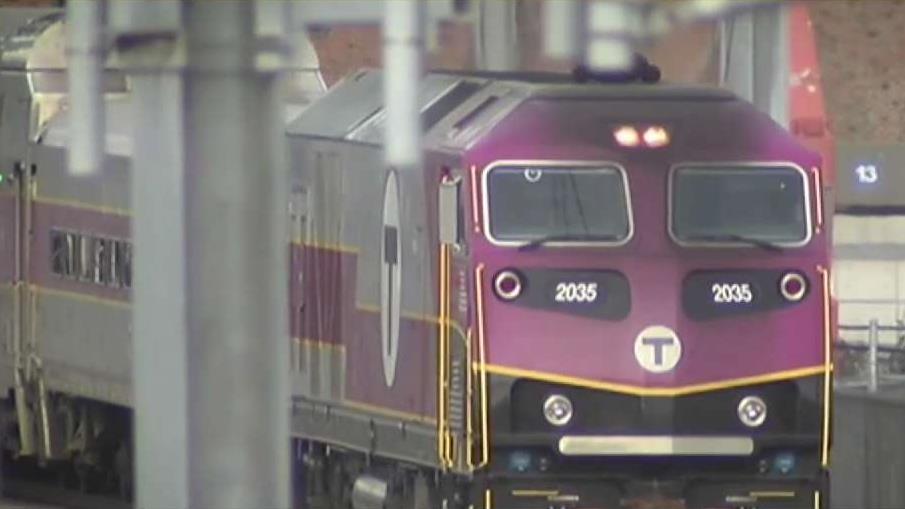Massachusetts will invest $8 billion into new roads and regional transit under a new plan announced by Gov. Maura Healey that she says won’t raise taxes.
Follow NBC10 Boston:
https://instagram.com/nbc10boston
https://tiktok.com/@nbc10boston
https://facebook.com/NBC10Boston
https://twitter.com/NBC10Boston
Massachusetts Gov. Maura Healey on Tuesday announced a plan to invest $8 billion in roads, bridges and the MBTA over the next 10 years, a plan she called “historic” and said will not rely on any tax increases.
The plan will be filed as legislation as part of Healey’s 2026 budget proposal, taking recommendations from the Transportation Funding Task Force, which recently delivered its final report to the governor.
WATCH ANYTIME FOR FREE
Stream NBC10 Boston news for free, 24/7, wherever you are. |
“Now we can start building the system that our state deserves,” Healey said.
Beacon Hill has about $1.3 billion in excess surtax revenue collected during fiscal year 2024, which must be spent on either education or transportation investments. Healey's forthcoming supplemental budget will call for steering $857 million -- about two-thirds of the total pot -- toward transportation.
Get updates on what's happening in Boston to your inbox. Sign up for our News Headlines newsletter.
Part of the plan will focus on stabilizing the MBTA finances immediately and setting the stage for a future of improvements.
Her plan will be spread into three different legislative vehicles: the annual fiscal year 2026 state budget which she plans to file next week, a separate supplemental budget to be filed with the annual budget, and a Chapter 90 bill that will emerge days after the other two.
Beacon Hill has about $1.3 billion in excess surtax revenue collected during fiscal year 2024, which must be spent on either education or transportation investments. Healey's forthcoming supplemental budget will call for steering $857 million -- about two-thirds of the total pot -- toward transportation.
Most of that funding, about $780 million, would be earmarked for the MBTA. Money would cover workforce and safety spending required in response to a 2022 Federal Transit Administration investigation, and replenish the T's savings after the agency drained its rainy day fund to balance its current budget.
Healey's annual budget, which she must file by Jan. 22, will call for steering $765 million of the $1.95 billion in available surtax funds to the Commonwealth Transportation Fund and repeating that pattern every year.
The transfer would work in two different ways, officials say. With an annual commitment, the state can borrow against the funding, unlocking about $5 billion in bonding capacity for capital projects, and still spend most of it on immediate transportation needs.
Proposed direct spending includes $500 million in surtax dollars on MBTA operating needs, $110 million on regional transit authorities, and $55 million on the state Department of Transportation.
Healey's budget will also call for continuing the traditional $187 million in T assistance through a different line item, pushing the total state budget funding for the agency to $687 million -- hundreds of millions of dollars more than the current spending plan.
The MBTA additionally receives a dedicated portion of state sales tax revenue, forecast to be about $1.4 billion in fiscal 2026. Taken together, those streams would represent more than $2 billion of state support for the T, whose budget this year surpassed $3 billion for the first time.
On the capital side, Healey envisions a major expansion of borrowing -- traditionally used to fund major expansion and improvement work -- in the next decade.
Her plan anticipates new bonding to cover projects like MBTA track improvements, part of the Allston highway megaproject, a sweeping bridge repair effort, and a significant fortification of the Chapter 90 program that reimburses municipalities for local road and bridge work.
Officials said soon after filing her budget, Healey intends to submit another bill calling for a five-year, $1.5 billion Chapter 90 authorization. The $300 million per year allocation represents a 50 percent increase over traditional funding levels, though lawmakers in some years have supplemented the $200 million for Chapter 90 with additional grant funding.
Legislative leaders are likely to review and respond to Healey's transportation funding plans during the first half of 2025. The House typically debates its annual budget bill in April, followed by the Senate in May.
At least one new figure will play a key role in the legislative proceedings. Rep. William Straus, who long co-chaired the Transportation Committee, retired at the end of last term. House Speaker Ron Mariano has not yet announced whom he'll appoint to succeed Straus.
Sen. Brendan Crighton of Lynn has been the top senator on the panel for several terms, and could return to that job again.
NBC10 Boston contributed to this report.



